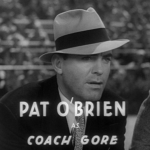 |
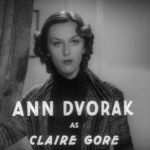 |
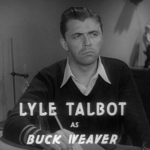 |
| Coach Gore Pat O’Brien |
Claire Ann Dvorak |
Buck Weaver Lyle Talbot |
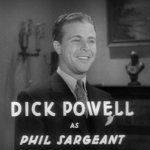 |
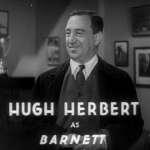 |
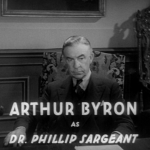 |
| Phil Sargeant Dick Powell |
Barnett Hugh Herbert |
Dr. Sargeant Arthur Byron |
| Released by Warner Brothers | Directed By William A. Wellman |
||
Proof That It’s Pre-Code
- Buck Weaver keeps a picture of a scantily clad woman in his dorm room. He leers, “How’d you like to stick your finger into her coffee?”
- Buck may be named so because he is constantly undressed, including a sequence where he gives an interview to reporters while showering.
- “I’m a Woodpecker. He’s a ‘Pecker, too.”
- Coach Gore orders an opposing star player to be ‘taken out’… and the results are that the player is killed.
- Claire has a lengthy extramarital fling with Buck, who begs her to marry him. She quips, “I’ve got one husband. That is supposed to be my quota.”
- Barnett is happy to share stories of “Myrtle”, a college widow lives just around the corner. He likes to visit, too.
College Coach: All Of Life’s A Game
“Always remember one thing: honesty is the best policy. Yessir. Life is just like a football game. Whether you’re the coach or the waterboy, always play on the level. If someone plays dirty, you play clean. The other man plays clean, you play dir– er, you play cleaner. […] And remember, my young friends, it’s not the score that counts, but the spirit in which the game is played!”
College is a business. In our glorious capitalist utopia, education isn’t and can’t be free. Schools need money to build the laboratories for the intellectuals of tomorrow, and for that they need a steady income stream. Since the government is terrified of creating educated students less we notice all the shady shit they’re up to, universities scrimp, cheat, and make their way in the shadowy world– usually through the heavily inflated importance and big money world of college athletics.
Of course, that leads inevitably to a conflict of interest. Is it more important to build a new stadium or a new chemistry lab? And what about the athletes themselves– if the colleges have a vested interest in them passing their courses, are they really getting the best education possible?
If this sounds like a surprisingly topical discussion for a site built on 1930s cinema, then today’s movie may offer you a shock– this little tug-of-war in academia has been going on for at least 8 decades at this point. It’s the same conflict that the fictional Calvert College suffers in College Coach, though, of course, the bite in College Coach is in pointing out that once the circus of collegiate football has been unleashed, academics become the sideshow.
We’re introduced to Coach Gore (Pat O’Brien) as he reads a book on Napoleon with equal parts admiration and self-inflation. He’s been hired by Calvert to help save them from crippling financial ruin. He has a three prong plan for it: hire the best collegiate players, wage an unrelenting publicity campaign to get the public behind him, and, if possible, profit from plenty of crooked side deals. He hires Barnett (Hugh Herbert) to pick up some of the slack on the last one but finds all of it quite time consuming, much to the frustrations of his wife, Claire (Ann Dvorak).
As for the players on the team, we’re only introduced to two of note. Team captain Phil Sargeant (Dick Powell) came to college for the excellent academics and gets frustrated when his courses suddenly become difficult to study for– and impossible to fail. On the other end of the spectrum is the big galoot Buck Weaver (Lyle Talbot being quite loud), a perv and egomaniac who came to Calvert for the fortune and glory. The two are forced to be roommates in hopes that they will loosen each other up, though, after a few disagreements, they spend most of their time simply tenderizing one another with their fists.
The film follows Coach Gore through two seasons, one victorious and the second more difficult. At the end of the first, Gore orders an opposing team member to be put out of commission, the kid dies, and he’s forced to spend his second year under more stringent rules regarding player bribery. This hampers him just enough that his tricks have to turn dirtier. An unhappy fate for the football program seems all but certain until self interest intervenes– Buck, who’d left the team after Gore discovered he had an affair with his wife, and Phil, who’d left after he’d seen his faith in his studies slip, both return when they realize they have something at stake in the final bout. For Buck, a chance to impress Claire, and for Phil, a victory means money in the bank to keep the school’s academics going. And, for Gore, victory in the final game means that the land he’d bought with another trustee can be sold at a 50% markup. If not, his career is garbage.
It’s a very pre-Code film, if you couldn’t tell from just the rampant corruption and how Gore is put center stage. While not the verbalist that Lee Tracy was nor the spritely monster that Cagney could whip out, O’Brien was a decent second-stringer who now and again got some juicy parts. This is not one of them, by any means, but he has his moments. When pestered away from a romantic evening with his wife to accept an award from the Campfire Scouts (or is it the Firefly Scouts? who cares), even the basest appeal to his ego works; watch the light in his eyes sparkle when he hears that not even Pop Warner has received such a dubious honor, and he’s instantly smitten.
Gore is big and important, and all the promotion he does lines his own pocketbooks: who cares about those ethical questions? The only tinge of regret he feels in the movie is when he realizes his wife has become unfaithful due to neglect. All of the chaos and even the literal death he’s caused mean little to the man who views his football players as little more than the peanuts he puts through strategic maneuvers on his desk. It’s not until the film’s climax that he comes to understand that, while he may be the master of bullshitting, it’s still the men on the field who are doing the hard work.
Weaver and Phil eventually triumph, despite their intense differences. It’s a dim view of teamwork, the idea that we had to stick together to survive but only out of self interest, though one that would have resonated in the Depression. College, the sacred institution, is easily defiled and ripped off by a few guys with some bright ideas and a buck to be made. There’s no optimism, and no return to the noble ideals of academia. By the end, there’s a new stadium and Gore, forever the Napoleon, moves onto his next conquest. It’s an ending that promises anarchy– but a kind of anarchy the cynical audience can appreciate and root for.
Have I pointed out what a terrible title College Coach is? Between that and Registered Nurse, I have a feeling Warners was just trying to capitalize on the box office potential of different professions, whatever the hell that was. And while the film is ostensibly about O’Brien’s Gore, in truth he falls to the background a bit because the rivalry between the very-too-old-for-college Powell and Talbot is far more compelling, with Talbot rampaging around like he’s playing the Wolf in a stage production of “The Three Little Pigs.” It’s not his finest hour, and I spent myself wishing he’d switched roles with the somewhat sleazier but funnier Nat Pendleton, who appears in the movie for what amounts to a cameo.
Ann Dvorak’s thankless part is useless, and it’s hard not to sense that the frustration that Claire is feeling may run a bit deeper than the character. She does have a great moment at the end as she tricks Buck into reentering the game and saving her husband (and thus putting her back in his good graces). Many actresses would have their characters literally act here, putting on a grand show as they trick the sap, but Dvorak can hardly hide her pleasure at the manipulation. It’s a cute moment– Buck wouldn’t have figured it out if she was holding up a sign explaining her motivations, after all– but still a disservice to the energetic actress.
William A. Wellman and College Coach
This review is part of the William Wellman blogathon, so let’s talk about him.
Of the 20-odd pictures that William Wellman directed during the four years that constitute pre-Code Hollywood, College Coach doesn’t rank in the top ten by any means. But it’s knowing and smart, and Wellman brings his usual energy to it. Coming right off the classic Wild Boys of the Road, Wellman continued with another social commentary, though College Coach never really aims for the same gut punches. Both movies also exude a level of hopelessness– as Gore notes in his argument with Dr. Sargeant after the player dies, this is a world of bread and circuses, where playing football resulted in 40 to 50 men a year being killed. If this is fun, what’s hell?
But the early 30s pre-Code era of movies would be vastly different without William Wellman, whose films were of disparate subjects but had an identifiable fiber to them. They all move to the same beat, like a symphony, whether it’s a movie about a woman farmer learning about the meaning of life or a prostitute stuck in a tropical hellscape. Oftentimes there’s an optimism that must be quelled, and a world where dignity and hope are carefully tempered against the impossible coldness of life. In one there may be a man poisoning children for money or a hoodlum rubbing his girlfriend’s face in a nearby fruit, in another, a railroad hand who rapes a runaway. Life endures and goes on, and the characters maintain their dignity through wits, if not blind courage and a likely-misplaced sense of hope.
College Coach is on the sillier end of the Wellman spectrum, even if all of his films contain a heavy amount of dark humor and amoral glee. College Coach and Night Nurse certainly share a certain amount of disdain for the facade that institutions put on. Other movies compare as well, like Central Airport‘s sexual rivalry that pits a man’s obsession against the girl he loves. That one has the same spiritual ending, a mix of understanding that when obsession is present, it’s a cycle that simply can’t be broken. It’s viewed in College Coach with humor, even if the obsession isn’t just ruining his marriage but the country’s entire higher education system.
Wellman worked with many of Hollywood’s greatest leading men and women, from Richard Barthelmess to Barbara Stanwyck, and his Public Enemy made a bonafide star out of James Cagney. Wellman gets the most out of his performers, or at least those willing to give.
His camera and cutting is light and effective as needed. Take College Coach‘s early scenes as Gore is announced as coach. Instead of the typical headline montage (which we get later in the movie), news of Gore’s arrival spreads across campus and we’re treated to a wonderful cross section of campus life, from the food vendor on the quad to the man throwing his books down at the library and running out the door. It grounds the rest of the movie, as we know that Calvert’s students have almost instantly gone football crazy, both for good and bad.
Another fun moment is the fistfight between Buck and Phil, shown almost entirely in legs dancing around. The sound effects tell us the rest of the story, but Wellman wisely lets our imagination do the work in creating the roughness without the pulled punches he’d need to shoot should he aim the camera a few feet higher.
But the most important moment (and best) moment in the film comes when Phil and Buck meet again, during the middle of the climactic game in the locker room, both hoping to sneak out and help win it for their own personal gain. Seeing one another, their tempers flair, and they’re almost ready to come to blows until the roar of the crowd snap them out of it and they trade smiles. It’s a weirdly sublime moment of a unity of purpose, and connects as a moment of genuine understanding reached almost wordlessly.
The rest of the movie is just Wellman having a lark, letting Lyle Talbot stomp around and getting kicks as his dumb egotist rubs up against O’Brien’s cannier one. College Coach isn’t an ideal showcase for any of the talent involved, but it’s an uncanny sort of timeless that’s fun enough to watch. It’s use of trademark pre-Code nihilism about the way sports reeks havoc on academia pulls no punches and today may indeed feel more relevant and pointed than in the days in which the movie was released.
Gallery
Hover over for controls.
Trivia & Links
- As mentioned above, this review is part of the William Wellman Blogathon hosted by Now Voyaging. There will undoubtedly be a ton of pre-Code entries, so check it out!
- Both Ward Bond and John Wayne make brief, pre-stardom appearances.
- Judy at Movie Classics, who discusses William Wellman quite often on her blog, talks about his touch and influence on this movie:
At the very start of the film, the college’s directors are shown discussing how to bring in money – and the first time I watched this scene I could hardly believe my eyes, as one of the directors appears to turn on a large flat-screen TV showing coverage of a football game. My husband pointed out to me that, in fact, he is turning on a large free-standing radio, and a picture of the game they are listening to is superimposed – but it does look spookily like a television set of today. In any case, this scene is a characteristic Wellman touch, like the moment in his early silent film The Boob where a picture of galloping horses on the wall comes to life – again looking strangely like a TV set to a modern viewer. I didn’t spot many other trademark touches in this movie, except for the surprising camera angles Wellman always favoured, such as a scene showing just Ann Dvorak’s feet walking to and fro. He was working here with cinematographer Arthur L Todd, who also worked on Wild Boys of the Road, which features many such shots.
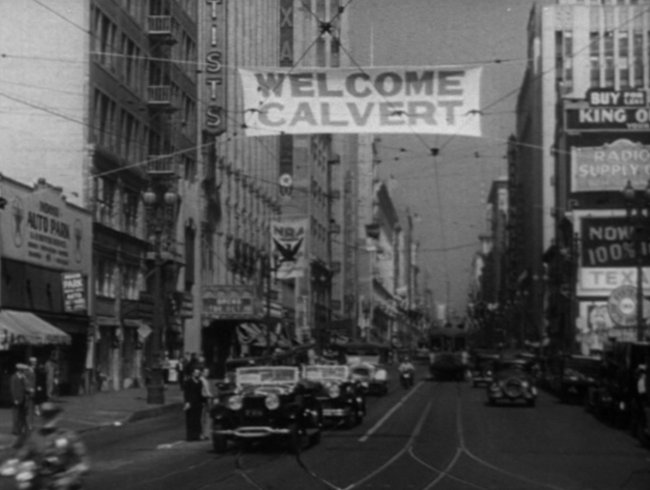
A nice shot of the random city street, but obviously not stock footage because of the Calvert banner. Check out the National Recovery Act banner, it’s huge!
- Dear Old Hollywood has a breakdown of the film’s locations.
- Raquel at Out of the Past offers plenty of screenshots and describes why she enjoyed the movie:
I love the dilemma between academics and sports. We all know that talented athletes are highly sought after my colleges and universities. And even today there is still debate about how much a school should invest in it’s academics versus it’s sports. Sports definitely bring more public recognition to a school than academics (unless we are talking about Harvard or MIT or something). ESPN will not be covering students doing a particularly tough chemistry experiment but will cover their basketball game. In College Coach (1933), the college’s academics is the poorer cousin to the much more handsome prospect of a robust football program. There is contention between them both with the hired players passing classes without having to do any studying.
- Mondo 70 and I disagree on a number of things, such as their love of Talbot in the picture. But I do admire how they write, so here’s their defense:
Powell may get the top billing but if anyone steals the picture from him it isn’t O’Brien, who in the title role is equally susceptible to theft, but Lyle Talbot in one of his best Pre-Code showcases, in a role he clearly enjoyed playing. Talbot often comes out second-best, at best, in these movies, but here he achieves a kind of seedy charisma, swaggering through the picture with a perpetual five o’clock shadow, unrepentant and nearly imperturbable despite some hard knocks along the way.
- Cinema Romantico likes it and compares it to modern sports charlatanism, explaining “Gore is less a football strategist than a strong-armed, button-pushing con artist.”
- The New York Times calls it ‘mildly diverting’ (the best kind of diverting!), complaining about the film’s final act:
It is unfortunate that “College Coach” collapses into routine and inferior entertainment after an excellent start. Unable or unwilling to develop a hard-boiled thesis with the vigor and heartlessness that are implicit in its theme, the film goes soft and apologetic and sentimental, Mr. Powell has apparently been tossed into it as a concession to the cinema box office.
Awards, Accolades & Availability
- This film is available on Amazon.
Comment below or join our email subscription list on the sidebar! |
||
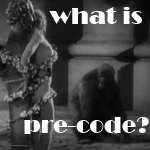 |
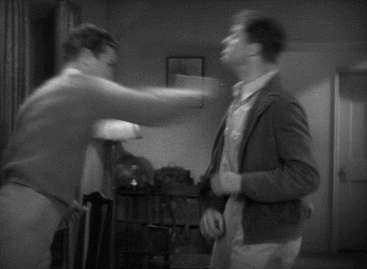 |
 |
 |
 |
|

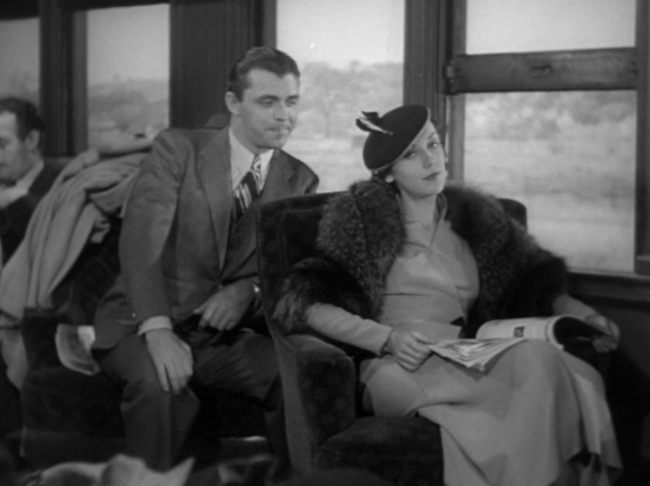
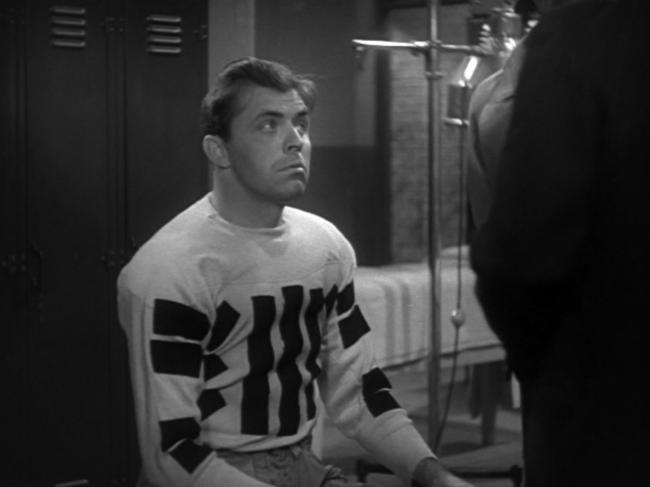
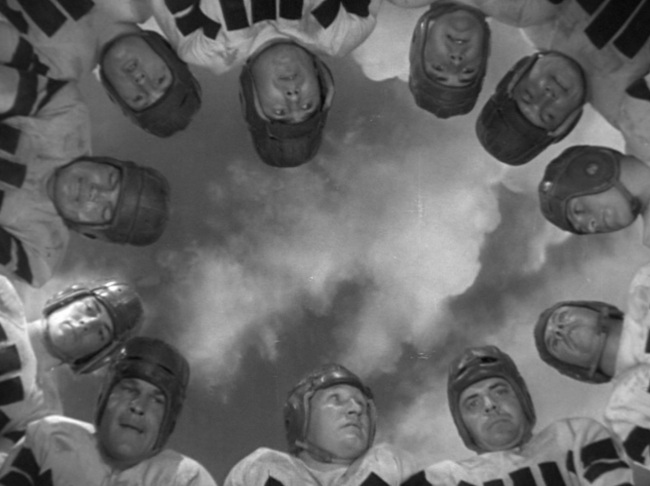
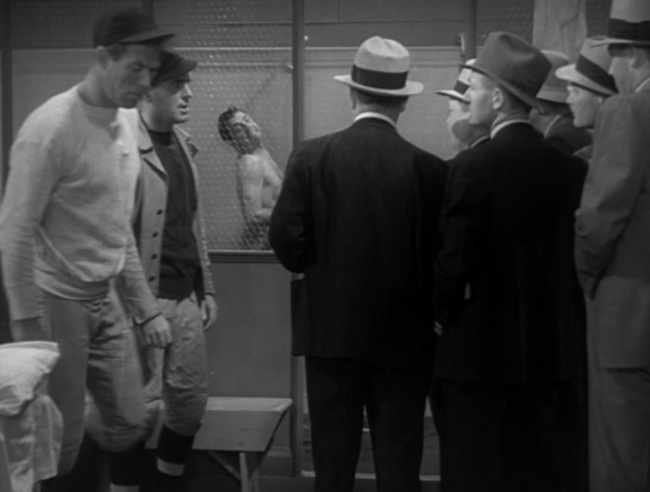
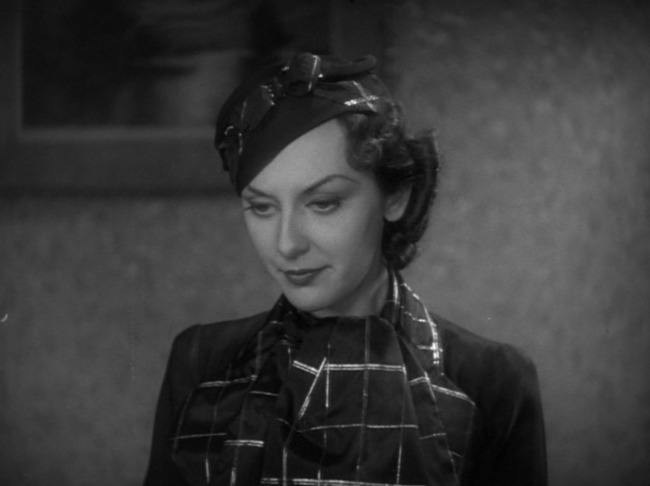
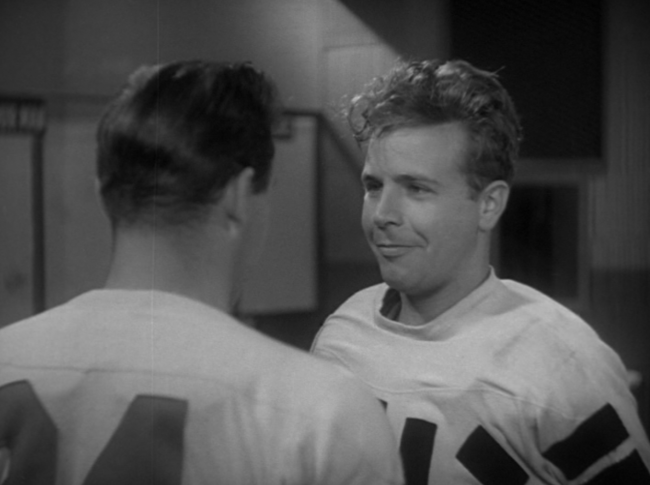
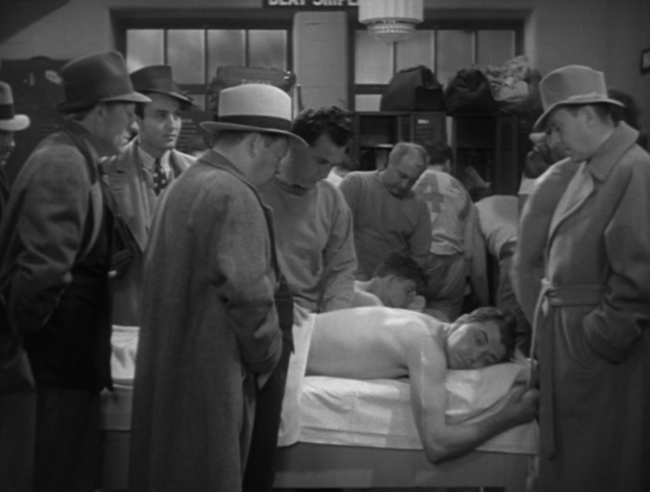
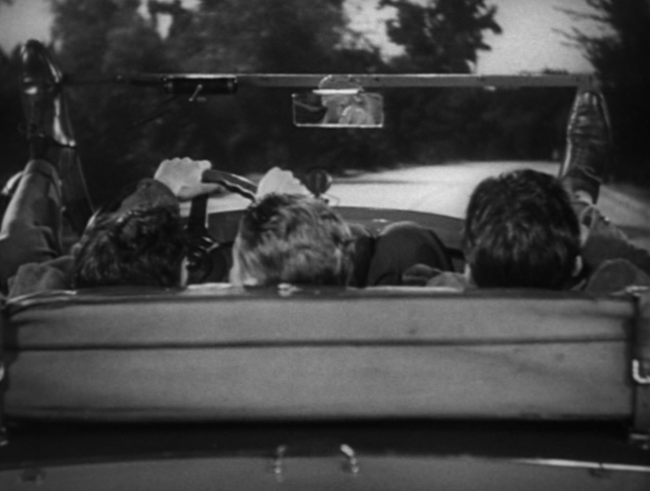
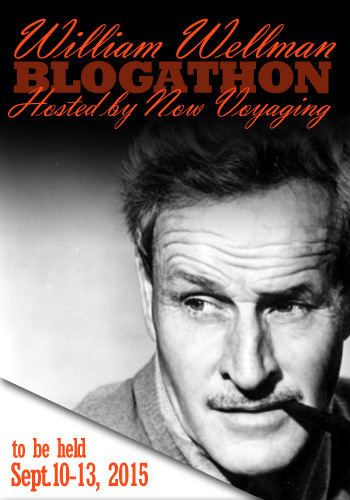
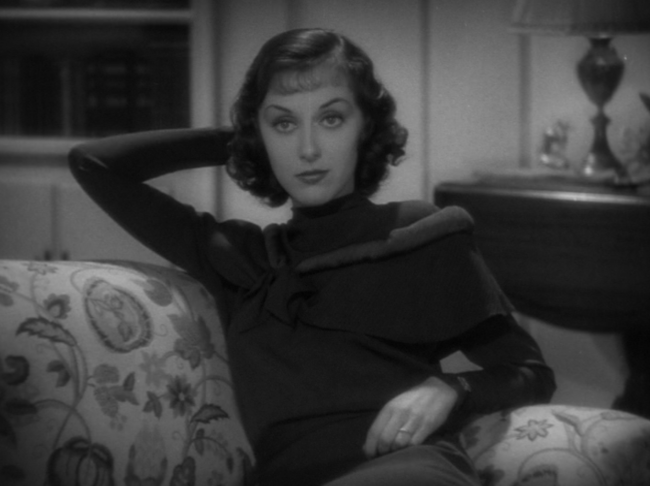



6 Comments
Judy · September 11, 2015 at 2:16 am
Great stuff Danny – I love your discussion of Wellman at the end, and especially your comment on how “all of his films contain a heavy amount of dark humor and amoral glee.” Thanks for the link to my piece… I found this film hard to follow because of not understanding American football, but still enjoyed its quirkiness and its mix of moods.
nowvoyaging · September 11, 2015 at 3:08 am
As always a fantastic read sir! I will have to seek this one out soon, if only for Lyle Talbot’s severe lack of pants. Thank you for joining the blogathon! 🙂
Danny · January 7, 2016 at 10:55 pm
Sure! Thanks for having me. 🙂
Patricia Nolan-Hall · September 11, 2015 at 8:14 pm
I’m sorry I missed this recently on TCM as the good seems to outweigh the bad and I enjoy those movies that remind us that people haven’t changed much in the intervening years between pre-code and now.
Vanessa B (@callmeveebee) · September 11, 2015 at 8:34 pm
This was on TCM a couple of days ago! I was flipping channels and as soon as I saw Ann Dvorak on the screen I was like, “Need to watch this right now!” That woman could make me do anything …
It wasn’t the *best* pre-Code I’ve ever seen but I enjoyed the cast and the film itself was fairly fast-paced.
Danny · January 7, 2016 at 11:04 pm
Glad you caught it!
Comments are closed.